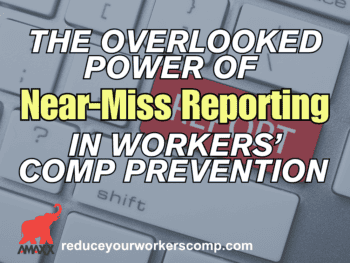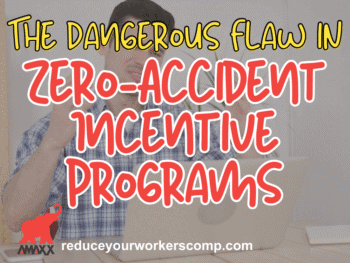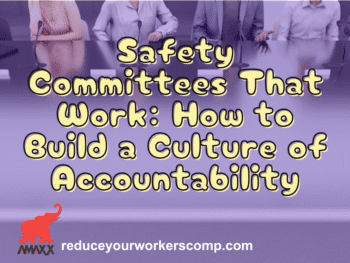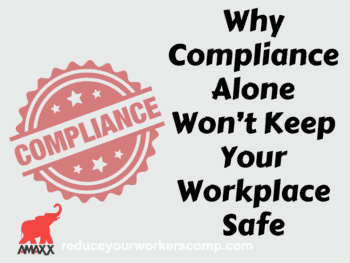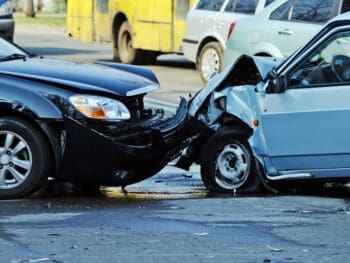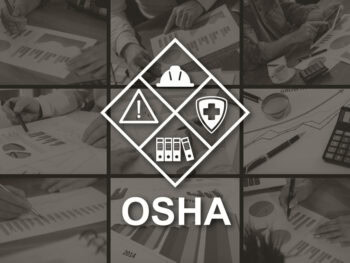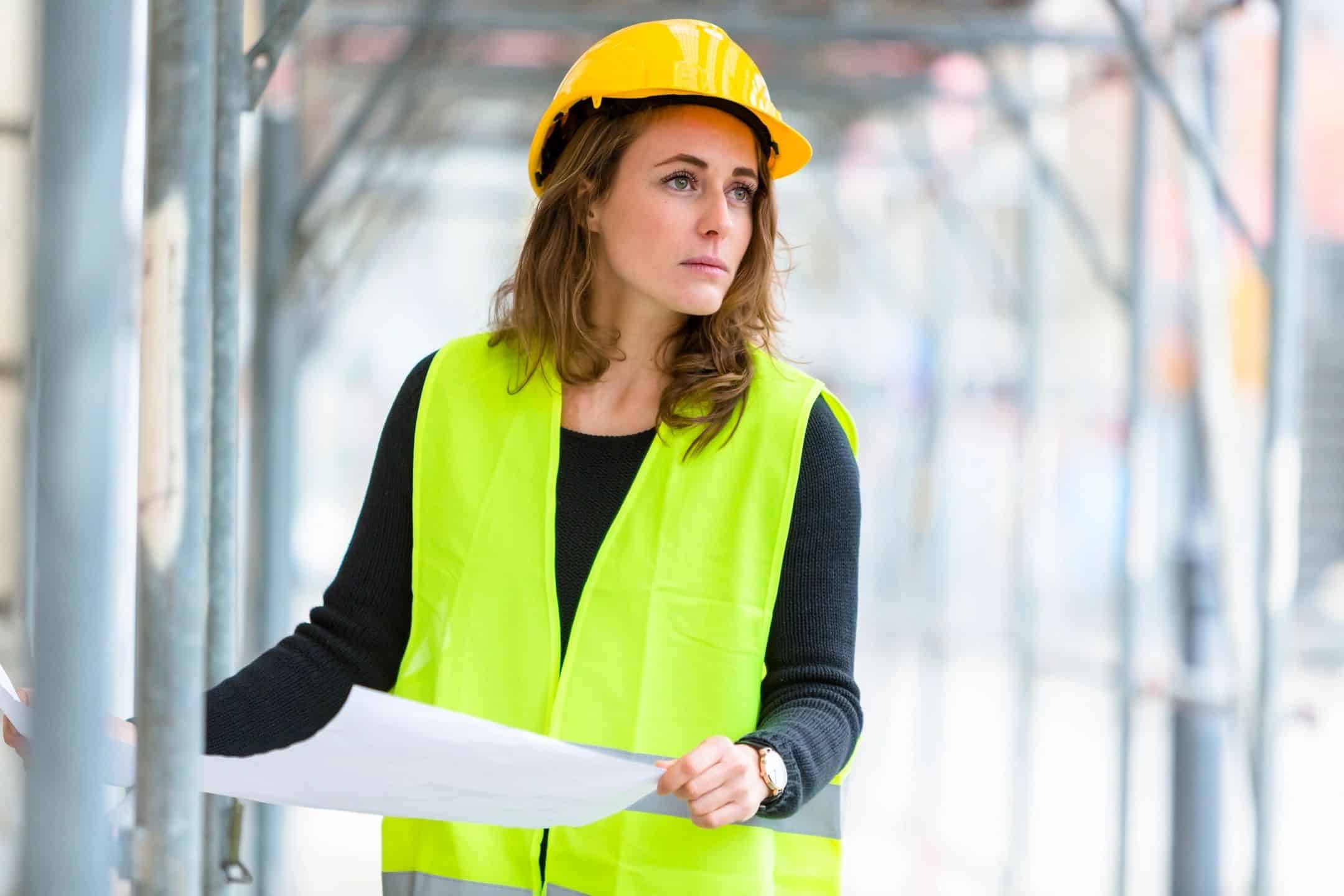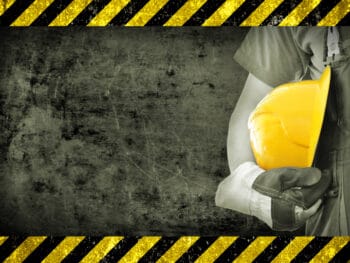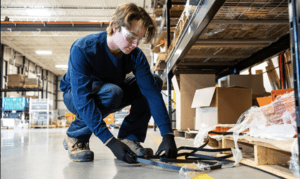
What Causes Slips, Trips, and Falls?
Slips occur when you lose your footing or balance because of decreased friction between you and the surface you are walking on. Slips usually occur when walking on surfaces that are wet, slick, or icy. You are more likely to slip if:
- You are in a hurry.
- You are running.
- You are wearing the wrong kind of shoes.
- You are not paying attention to your surroundings.
- You are walking on flooring that does not have adequate traction.
Trips occur when your foot hits an object and causes you to stumble or fall. Trips are more likely to occur due to:
- Loose mats or rugs.
- Poor lighting or visibility when walking.
- Cluttered workspaces.
- Areas that are not properly maintained.
- Uneven steps or pavement.
- Uncovered cables or cords.
Falls are a hazard found in many work settings and can be caused by slips and trips. Falls occur when you come down suddenly from the same level—like a fall when walking on a sidewalk—or from a higher to a lower level—like from the top of a 6-foot ladder to the ground. Falls from a height are one of the leading causes of death from occupational injuries. Falls can occur in a workplace due to:
- Slippery or unstable walking/working surfaces.
- Holes in the floor and/or wall openings.
- Ladders in unsafe positions.
- Not using or improperly using fall protection measures and/or equipment.
How Can I Prevent Slips, Trips, and Falls at Work?
Most slips, trips, and falls at work can be prevented. Employers and employees are both responsible for preventing injuries from slips, trips, and falls at work.
Employers can help decrease the incidence of slips, trips, and falls by:
- Maintaining good housekeeping: This can include cleaning up spills; clearing walkways of hazards such as loose cords, wires, or empty boxes; maintaining walkways to provide even surfaces; ensuring mats or rugs lay flat; making sure there is adequate lighting in work areas and stairwells; and avoiding the use of cleaning products that could make floors slippery.
- Providing the right safety equipment: This can include safety shoes, harnesses, fall protection, guardrails, and handrails.
- Providing the right training: This can include training on the use of safety equipment, fall protection equipment, and ladders. Employers should also train on how to report unsafe conditions so issues can be addressed before an injury occurs.
- Providing the right signage: This can include clearly marked areas such as signs for wet floors.
- Inspecting the workplace for potential hazards: This can include having a safety team that helps to inspect workspaces on a regular basis.
You can help decrease the incidence of slips, trips, and falls in the workplace by:
- Paying attention to your surroundings.
- Not using your phone while walking.
- Avoid running in the workplace.
- Avoid carrying too many objects at one time as this may obstruct your view when walking.
- Using caution when walking in wet or icy conditions.
- Keeping your workspace free of clutter.
- Always using ladders safely, as trained by your employer.
- Always using the safety equipment provided, even if you are in a hurry.
- Speaking up If you have not received safety training and asking for training before starting a task with new hazards.
- Reporting hazards or potential hazards right away.
- Cleaning up spills or clearly marking the area and reporting it to prevent someone else from a potential slip and fall.

This article is not intended to diagnose or treat any condition or to give medical advice. Always consult your primary care provider for healthcare instructions. External links are provided as references and do not indicate an endorsement by Medcor. External links are subject to other sites’ terms of use and privacy policies.
Blog originally posted at: https://www.medcor.com/2021/04/14/preventing-slips-trips-and-falls-in-the-workplace/

